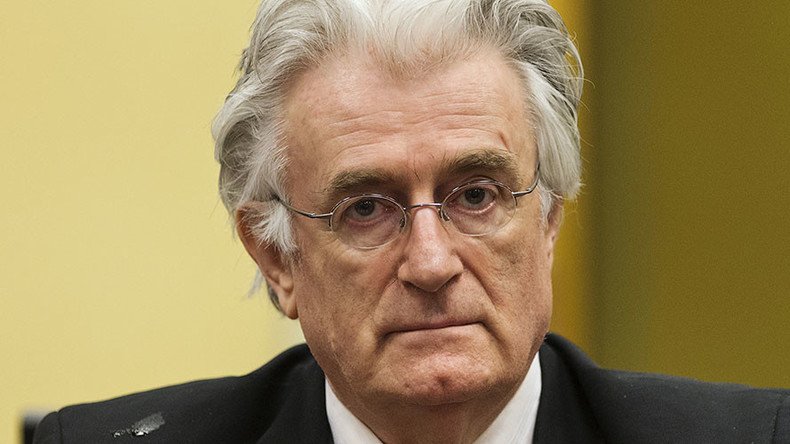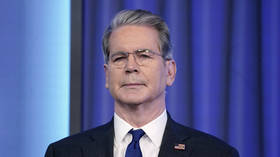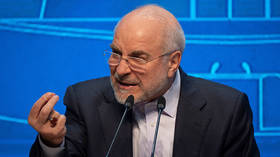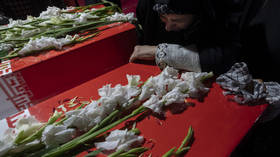War crimes tribunal to pass judgement on Bosnian Serb leader Karadzic

A UN war crimes tribunal is to announce its verdict in the case of Radovan Karadzic, the Serbs’ leader in Bosnia during the 1990s civil war. Arrested in 2008 accused of genocide, Karadzic insists he wasn’t complicit in atrocities like the Srebrenica massacre.
The International Criminal Tribunal for the former Yugoslavia (ICTY) indicted Karadzic on a total of 11 charges, including two counts of genocide, five counts of crimes against humanity, and four counts of violations of the laws or customs of war that were allegedly committed during the 1992-1995 conflict in Bosnia-Herzegovina.
After an almost five-year trial, the verdict is one of the most anticipated in the history of the tribunal, which was established at the insistence of the US in 1993. Proponents of the court hope the decision will bring some closure to what was arguably the darkest chapter of the Balkans’ modern history.
As the supreme commander of the Bosnian Serb Army at the time, Karadzic is accused of being responsible for numerous sniper and artillery attacks on the population of Bosnia’s capital, Sarajevo, during its 44-month siege.
Karadzic is also accused of what is known as the Srebrenica massacre, in which Bosnian Serb forces allegedly murdered nearly 7,500 Muslim men and boys, according to Bosnian Muslims and Western governments.
#Karadzic judgement on Thursday, 24 March 2016 at 2 pm at #ICTY
— Peter Robinson (@PeterRobinICTY) February 18, 2016
In a recent interview with the Balkan Investigative Reporting Network (BIRN), Karadzic rejected responsibility for the atrocities, insisting that he had led a “permanent fight to preserve the peace, prevent the war and decrease the sufferings of everyone regardless of religion.”
“With Srebrenica, unfortunately, I cannot deny everything that is alleged, but I have to contest the extent and background of what happened,” he wrote to BIRN. “Again, it wasn’t an army unit that was tasked to do the misdeed; rather it was a sort of patchwork, a random collection of guys summoned to do the killings, to their surprise, against their own will and interest, and it was so clandestine that the perpetrators hid it from their most immediate commander.”
READ MORE: Defense witness in genocide case against Bosnian-Serb Mladic found dead in Hague hotel
The Western media, which has dubbed Karadzic “The Butcher of Bosnia,” has hailed the trial, speculating that the ICTY will hand down a life sentence in the case – the harshest punishment available.
Critics of the tribunal have accused it of conducting a show trial that has denied the accused access to evidence necessary to mount a proper defense. With less than 24 hours left before the verdict is revealed, Karadzic’s legal advisor, Peter Robinson, tweeted: “Just rec’d 208 pages of exculpatory material in #Karadzic case from #ICTY prosecution this afternoon. Seriously, prosecutors?”
Just rec'd 208 pages of exculpatory material in #Karadzic case from #ICTY prosecution this afternoon. Seriously, prosecutors?
— Peter Robinson (@PeterRobinICTY) March 23, 2016
Meanwhile, Karadzic seems sure of his acquittal.
“I know what I wanted, what I did, even what I dreamed of, and there is no reasonable court that would convict me, no matter how many high-ranking Bosnian Serb officials have been convicted,” he said.
READ MORE: All Srebrenica massacre culprits must be punished – Moscow
Karadzic is one of three high-profile Serb leaders to have been put on trial by the tribunal in The Hague. The trial of Bosnian Serb military chief, General Ratko Mladic, is still ongoing. Serbian president Slobodan Milosevic mysteriously died in the court’s custody on March 11, 2006, just before the completion of his four-year trial.












